Happy Monday! With the Chiefs laying an egg last night, can we finally chill out with all those State Farm Bundle-Rooski ads for a little bit?
Quick Hits: Today’s Top Stories
- Israel on Saturday welcomed home three male hostages—Or Levy, Eli Sharabi, and Ohad Ben Ami—from terrorist captivity after 491 days in the Gaza Strip. Health officials said the men, who all appeared underweight upon their release, now suffer from severe health conditions, including malnutrition and heart disorders. Also on Saturday, Israel freed 183 Palestinian prisoners, 18 of whom had been serving life sentences. The exchange is part of the first phase of a three-part ceasefire deal between Israel and Hamas, in which the terrorist group has agreed to release at least 33 of the 97 remaining hostages in exchange for more than 1,500 Palestinian prisoners. On Sunday, Israeli troops withdrew from the Netzarim Corridor—which separates northern and southern Gaza—as part of the agreement. Meanwhile, the Trump administration notified Congress on Friday that it had approved the sale of more than $7 billion in weapons to Israel, including 3,000 Hellfire missiles and other munitions.
- Ecuador’s president, Daniel Noboa, failed to secure the outright majority necessary to win reelection in the country’s election on Sunday, teeing up a runoff vote against leftist Luisa González. With 96 percent of the ballots counted early Monday morning, the 37-year-old center-right incumbent had won 44.37 percent, while González—the runner-up in a 2023 race—had secured 43.86 percent. The next round of voting, in which Ecuadorians will decide whether to stick with Noboa’s hardline approach to combating gang violence in the South American country, is scheduled for April 13.
- President Donald Trump hosted Japanese Prime Minister Shigeru Ishiba at the White House on Friday, marking the two leaders’ first in-person meeting. The pair discussed tariffs and Japanese-owned Nippon Steel’s attempted $14 billion acquisition of U.S. Steel, which former President Joe Biden halted last month on national security grounds. Trump indicated Friday that the Japanese firm would “invest heavily” in the American steel manufacturer instead of attempting to purchase it outright. Japanese Chief Cabinet Secretary Yoshimasa Hayashi seemed to confirm the revised plan on Monday, though Nippon Steel has yet to comment.
- President Trump said on Friday that he was ending former President Joe Biden’s access to intelligence briefings, effective immediately. “There is no need for Joe Biden to continue receiving access to classified information,” Trump wrote on Truth Social. Outgoing presidents have traditionally been permitted to receive briefings after their term has ended, though Biden revoked Trump’s access to classified information after taking office in the wake of the January 6, 2021, Capitol riot. Over the weekend, Trump also revoked security clearances from several top Biden administration officials: former Secretary of State Antony Blinken, former National Security Adviser Jake Sullivan, and former Deputy Attorney General Lisa Monaco.
- A federal judge on Saturday temporarily halted Elon Musk’s Department of Government Efficiency (DOGE) from accessing the Treasury Department’s payment system. The preliminary injunction came in response to lawsuits by 19 state attorneys general against the Trump administration, which earlier this month had given DOGE access to the system containing the personal information of millions of Americans. U.S. Judge Paul A. Engelmayer—who Musk said Sunday should face impeachment over the order—will hold a hearing Friday to determine if the suspension will continue.
- The National Institutes of Health announced plans on Friday to significantly cut its grants to research institutions. The move, which the administration said will save more than $4 billion a year, limits the government’s indirect funding for new and current research projects to 15 percent—significantly lower than the reimbursement average of 27 to 28 percent. Indirect costs refer to fees that are not strictly related to the research at hand, including equipment, maintenance, and personnel. In a post on X, the agency said large portions of its grants had previously gone to covering administrative overhead rather than direct research costs.
- Multiple outlets reported Friday that Russell Vought—the newly confirmed head of the Office of Management and Budget—took over as acting director of the Consumer Financial Protection Bureau (CFPB) and ordered the agency to cease its operations. In an email, Vought told employees of the federal government’s independent banking watchdog—established during the Obama administration—to immediately halt “all supervision and examination activity” and “all stakeholder engagement.” On Sunday, the administration reportedly closed the bureau’s headquarters through this Friday, ordering its staff to work from home. The moves followed the administration’s firing of the CFPB’s director, Rohit Chopra, earlier this month.
- President Trump ordered the Treasury Department on Sunday to stop minting new pennies, describing the one-cent coin as a wasteful and unnecessary expenditure. According to the U.S. Mint, the government lost $85.3 million in the 2024 fiscal year producing 3.2 billion pennies, with each one costing 3.69 cents to manufacture and distribute. But it’s unclear whether Trump can unilaterally end the coin’s manufacture—an authority that has historically fallen to Congress.
- The Bureau of Labor Statistics reported Friday that U.S. employers added 143,000 jobs in January—down from 307,000 in December as the labor market showed signs of cooling. The unemployment rate ticked down slightly from 4.1 percent to 4 percent, while the labor force participation rate remained unchanged at 62.6 percent. Average hourly earnings—a measure the Federal Reserve is watching closely in its fight against inflation—rose 0.5 percent month-over-month in January, and 4.1 percent year-over-year. Those figures were 0.3 and 3.9 percent in December, respectively.
- The Philadelphia Eagles defeated Kansas City 40-22 in Super Bowl LIX last night, thwarting the Chiefs’ ambition of winning what would have been an NFL-first three consecutive Super Bowl titles. Eagles quarterback Jalen Hurts was named the game’s Most Valuable Player, having passed for 221 yards and run for 72 more while accounting for three total touchdowns.
Beijing’s Technological Strides
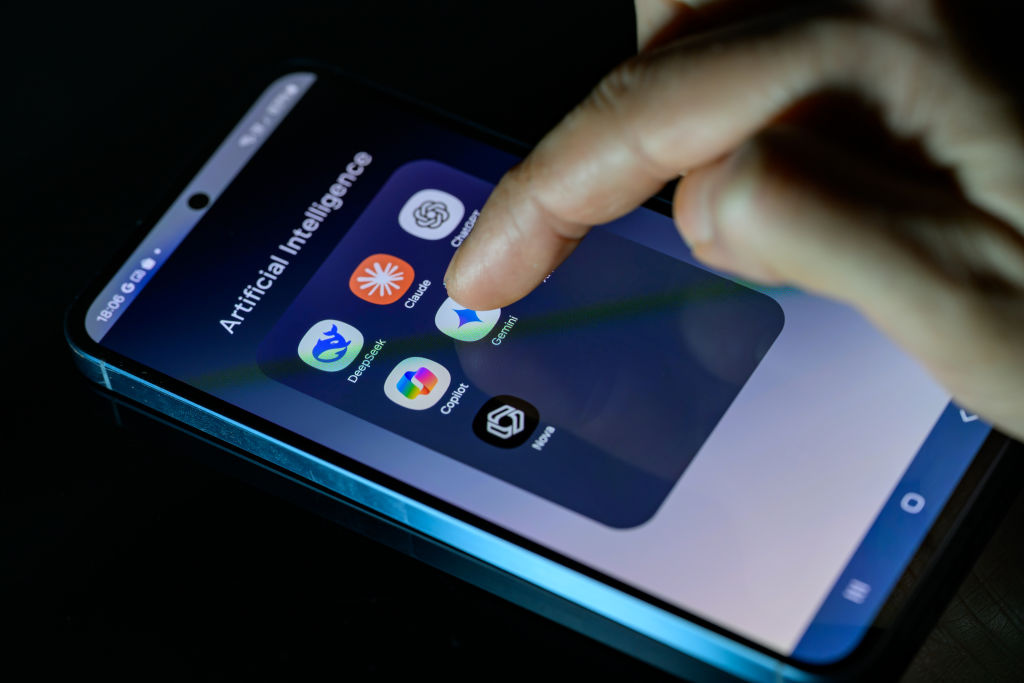
Back in 2023, then-President Joe Biden was reportedly so alarmed by the latest Mission: Impossible film, which features sentient artificial intelligence (AI) as the film’s villain, that he passed a sweeping executive order to curb the technology’s unchecked development.
But two years later, it looks like he might have been fretting about the wrong blockbuster. There isn’t yet a sci-fi AI mastermind, but we do have an escalating technological arms race between two major powers—the United States and China—of the likes depicted in Oppenheimer. And despite President Donald Trump’s talk of American AI domination, recent developments suggest China has been making up ground faster than many observers expected.
For years, there had been a sense that China lagged behind the United States in its AI development, particularly after the Biden administration placed export controls on the advanced chips needed to develop cutting-edge large language models (LLMs) models like ChatGPT starting in 2022. Most of Beijing’s AI advancements already came from copying open-source American models like Meta’s AI, seemingly confirming that the country was better at imitating than innovating.
But two models by the Chinese AI lab DeepSeek, unveiled last month, may have changed the game. The lab said it created R1—which performed as well as or better than leading American models—at the cost of just $5.6 million, a fraction of the over $100 million it cost to develop comparable models. The news sparked a massive stock market reaction, with chip manufacturers Nvidia and Broadcom losing a combined $800 billion in market cap after the announcement. DeepSeek also claimed that it had used just 2,000 chips to train its V3 model, significantly fewer than the estimated 25,000 chips used to train ChatGPT-4.
In reality, DeepSeek’s purported advances came with a big asterisk. The cited cost of $5.6 million was the price to run the final round of training, and didn’t include all the previous training rounds and infrastructure investments that led to it. DeepSeek has also reportedly used more than 50,000 Nvidia graphics processing units (GPUs) and spent upwards of $500 million in hardware throughout the company’s history.
Still, China’s strides in the AI race have given American officials and analysts cause for concern, particularly as Beijing makes up ground despite U.S. export controls. “The gap has narrowed since the launch of ChatGPT in October 2020, where it seemed like the United States was out far ahead,” Greg Allen, the director of the Wadhwani AI Center at the Center for Strategic and International Studies, told TMD. President Donald Trump also recognized the significance of DeepSeek’s progress, describing it as “a wake-up call for our industries that we need to be laser-focused on competing to win.”
But what would winning look like? Artificial general intelligence (AGI): a model that can accomplish any task as well as or better than humans, essentially creating human-like intelligence in a machine. Both countries are racing toward the capability, which would give a decisive strategic advantage to whichever country achieves it first, particularly in the realms of national security, cyber attack capabilities, and military technology.
As much as AGI seems like science fiction, AI industry leaders think we could reach the milestone in the next few years. OpenAI CEO Sam Altman told Bloomberg in January that AGI would likely be developed during Trump’s term in office, and Shane Legg—co-founder of Google’s DeepMind AI lab—said he thinks there is a 50-percent chance that we reach AGI by 2028. “We appear to be heading in the not-too-distant future towards performance that is jaw-droppingly economically valuable,” Allen said. It is those “next turns of the crank in scaling up AI performance” that the U.S. is hoping to prevent China from reaching, he added.
The Biden administration tried to slow Beijing’s AI development by imposing chip export controls, keeping the most powerful AI-ready chips out of reach of Chinese companies. But analysts argue that the restrictions needed to be updated in 2023, 2024, and 2025, after both China and American chip manufacturers like Nvidia exploited loopholes in the controls. DeepSeek reportedly has access to 20,000 chips that are now not allowed to be sold to China.
China is also working to produce its own chips, but it doesn’t yet have the manufacturing equipment to develop GPUs on par with industry leaders given export controls from countries like the Netherlands and Japan. But if China produces the equipment to develop advanced chips domestically, such restrictions won’t matter. And it could be just a matter of when not if: The timeline for creating these chips depends on how quickly Chinese chip manufacturers can reverse engineer the machines they have on hand and start making copies of them domestically, Allen said.
Adding to the complicated picture is the prospect of a Chinese invasion of Taiwan. If Beijing took over the island, it would have unfettered access to the Taiwan Semiconductor Manufacturing Company (TSMC), which produces more than half of the world’s semiconductors. “If they decide to take over TSMC, it’s kind of game over,” Shane Tews, a nonresident senior fellow at the American Enterprise Institute, told TMD. The Taiwanese semiconductors are vital for the most advanced AI-ready chips, and, despite the 2022 CHIPS Act, American manufacturers are not yet positioned to develop the necessary semiconductors on their own.
But if U.S. enforcement of export controls falters, China could quickly have access to leading chips without needing to develop its own—and the Trump administration has already disbanded the Department of Justice unit that enforces corporate violations of export controls.
AI isn’t the only technology that China and the United States are competing over, though. Quantum computing allows computer bits to process multiple pieces of information at a time, exponentially increasing computing power and enabling computers to crack most encryption on data stored around the world. The technology technically already exists, but it is still in its early days and not yet viable. “Everything will be breakable,” Tews said. “It’s a national priority [for China] to get to quantum before the United States.”
Both countries are already reportedly working on what is called “harvest now, decrypt later” initiatives, gathering data that they will decrypt after they develop the capability. But it’s unclear whether the U.S. has made the technology a top priority. China has invested $15 billion into quantum computing, compared to the United States’ $4 billion. Private investment over the last several years in the U.S. totaled more than $8 billion, but it was a fraction of the $200 billion investment in AI.
The United States is still well-positioned in its competition with China, but it’s far from guaranteed that the race will end in an Oppenheimer-style American victory. Trump signed an executive order establishing “global AI dominance” as official government policy, but it remains to be seen what actionable steps the administration will take.
“We could absolutely blow this,” Allen said. And with the Trump administration removing enforcement of export controls, he added: “We might currently be in the process of blowing this.”
Worth Your Time
- On the Ezra Klein Show, Yuval Levin—the director of Social, Cultural, and Constitutional Studies at the American Enterprise Institute—discussed the constitutional pitfalls of the Trump administration’s early efforts to reshape the federal government. “Now look, in the long term, there’s certainly an argument for driving some churn in federal employment, for bringing in some new blood. I can see that,” he said. “But politics is a medium-term business. And in the medium term, this is going to bring chaos. Think, for example, about what they’re doing to their new political appointees. You have all these people who are just now getting confirmed by the Senate. They’re coming into these departments. Some of them are quite new to these places; some of them, maybe, have been there before. And they’re coming in while, say, a fifth of their workforce is going through a long-term resignation process. And the people resigning have not been chosen on the basis of which jobs are most important, which people are doing the best work, what government functions are most essential, what actually has to be done by law. None of that. It’s all happening on the basis of who finds it attractive to not work until September while getting paid. That means they’re going to come in with chaos. And the way they’re approaching it is rooted, I think, in a Silicon Valley argument that says: Creative destruction is how you learn. Break things and then see how they fall. And you can build something new. And the civil service just isn’t going to work that way. That’s not really how this system can learn.”
Presented Without Comment
Associated Press: Super Bowl Halftime Performer Detained After Unfurling Sudanese-Palestinian Flag
Also Presented Without Comment
Metro Philadelphia: Philly Mayor: “Do Not Climb Light Poles”
Also Also Presented Without Comment
National Security Adviser Mike Waltz, in an interview with NBC News: “I don’t think there’s any plans to invade Canada.”
In the Zeitgeist
In what was probably one of the weirder Super Bowl commercials to air last night, Seal—as a seal—sang a tweaked version of his hit song, “Kiss From A Rose,” to push Mountain Dew Baja Blast. God bless America.
Toeing the Company Line
- Interested in artificial intelligence? The Dispatch is excited to be partnering with the Tarbell Center for AI Journalism to bring on an early career reporting fellow later this year who will cover the rapidly evolving world of AI development and policy. Fellows will participate in a 10-week study group to get up to speed on AI governance and technical fundamentals and attend a week-long journalism summit in San Francisco before being placed in a newsroom—potentially The Dispatch! If you’re interested—or know someone who might be—the application can be found here, and must be completed by February 28!
- In the newsletters: Nick Catoggio weighed (🔒) the Democrats’ potential strategies going into midterms, Jonah Goldberg looked into the left’s ideology problem, and Dan Hugger considered what Vice President J.D. Vance gets wrong about the Catholic Church’s mission in the latest Dispatch Faith.
- On the podcasts: Jonah ruminated on the early days of the Trump administration and the future of the Democratic Party. Plus, Patrick T. Brown joined Michael Reneau on The Skiff (🔒) to discuss the evolving landscape of compassionate conservatism.
- On the site over the weekend: Greg Fournier reviewed Agnes Callard’s new book Open Socrates: The Case for a Philosophical Life, Ivana Greco reflected on the invisible but vital role of mothers in the act of celebration, and Patrick T. Brown shared his takeaways from Ross Douthat’s book, Believe: Why Everyone Should Be Religious.
- On the site today: Matthew Kuchem pens this week’s Monday Essay about the horseshoe politics of higher education, and Tommy Sheppard writes about how Americans overcame their opposition to standing forces to establish the U.S. Military.
Let Us Know
Did you watch last night’s Super Bowl? Who were you rooting for? What were your favorite moments?



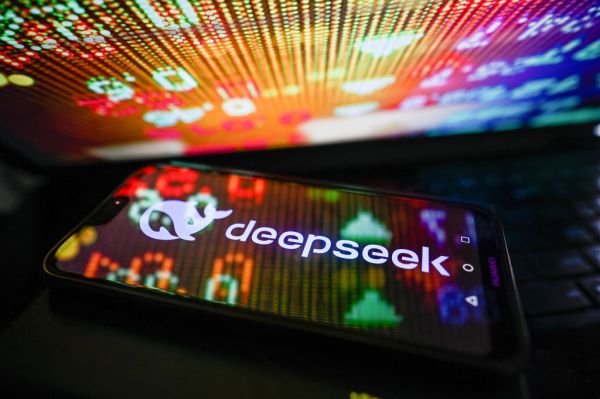
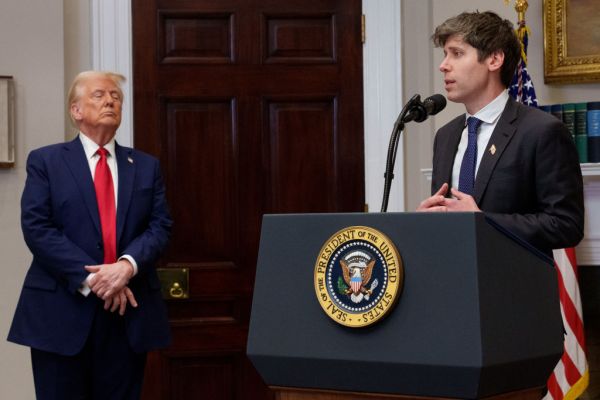
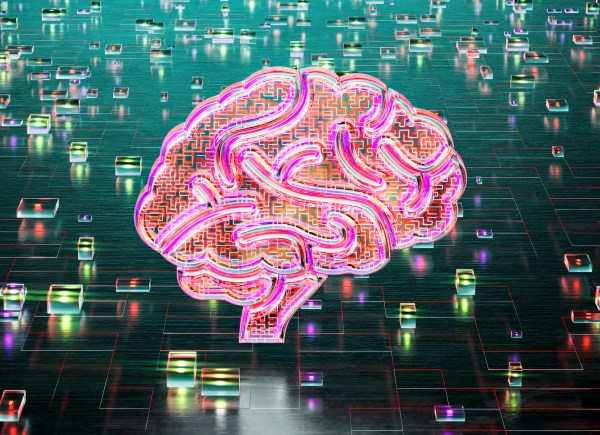
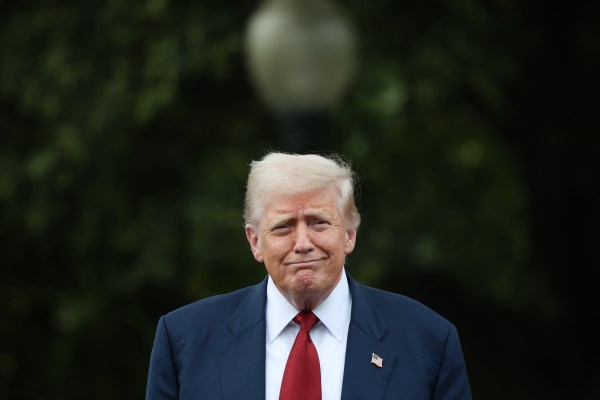
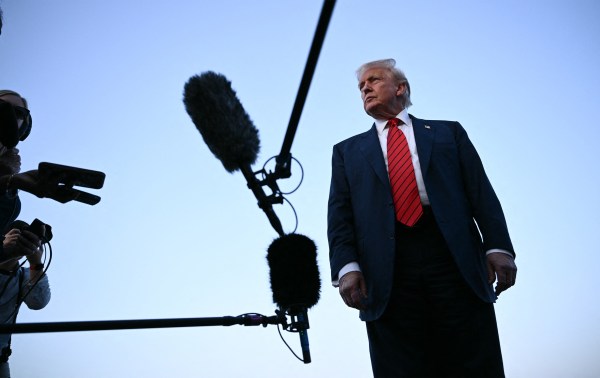

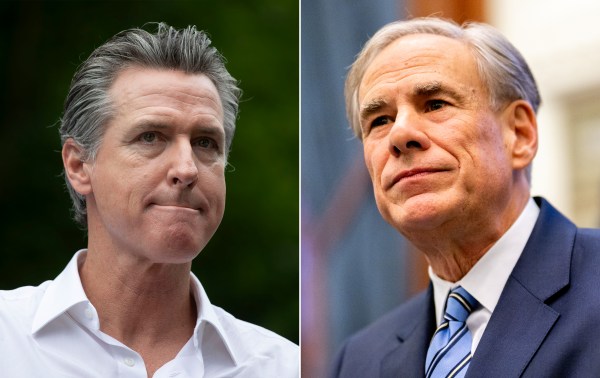

Please note that we at The Dispatch hold ourselves, our work, and our commenters to a higher standard than other places on the internet. We welcome comments that foster genuine debate or discussion—including comments critical of us or our work—but responses that include ad hominem attacks on fellow Dispatch members or are intended to stoke fear and anger may be moderated.
With your membership, you only have the ability to comment on The Morning Dispatch articles. Consider upgrading to join the conversation everywhere.